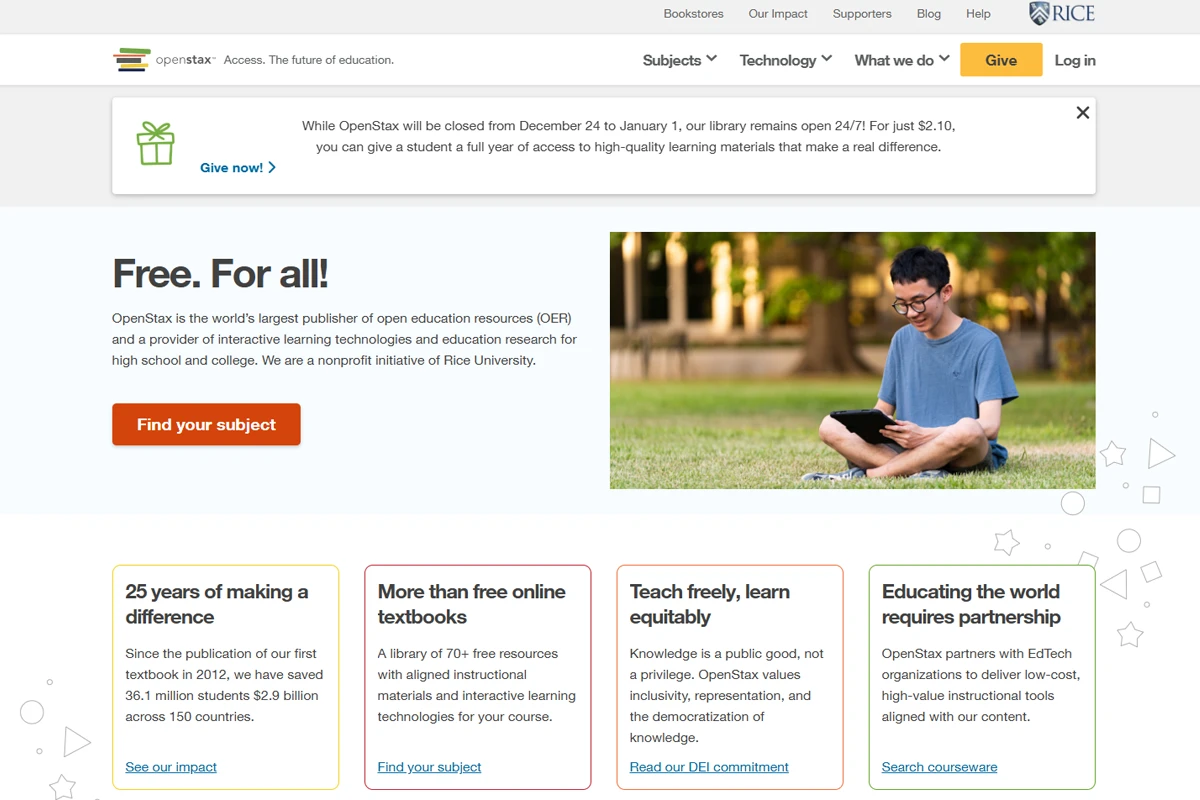Textbooks can cost a fortune, especially for students and lifelong learners. The good news? You don’t have to pay full price to get the knowledge you need. Choosing cheaper alternatives like used textbooks or digital options can save you hundreds—or even thousands—of dollars during your education.
Let’s break down why buying new isn’t worth it and explore smarter, budget-friendly options to keep your learning affordable.
Why New Textbooks Are Overpriced
The average college textbook costs $80 to $200, with some specialized books costing even more. Publishers release “new editions” every few years, often with only minor updates, just to keep profits flowing. For most learners, the small changes don’t justify the big price tag.

Used Textbooks
Used textbooks are one of the best ways to save. Here’s why:
- Way Cheaper: Used copies are often 50%–75% cheaper than new ones.
- Just as Useful: A little wear and tear doesn’t affect the information inside.
- Easy to Find: Check online marketplaces, local bookstores, or even campus bulletin boards.
Way Cheaper
Textbook prices can quickly add up, but buying used copies can save you a significant chunk of money. Instead of paying $150 for a brand-new book, you might find a used version for $40–$70. These savings add up over the course of a semester or degree program, leaving more money in your pocket for other essentials like groceries, tuition, or even a little treat for yourself. By making the switch to used books, you could save hundreds of dollars each year—money that can be better spent on advancing your education or improving your quality of life.
Just as Useful
A textbook’s value lies in its content, not its shiny cover or uncreased pages. Used textbooks may have a few highlights, notes, or dog-eared corners, but these don’t diminish their ability to teach. In fact, some markings can even be helpful, giving you insights into what previous readers found important. As long as the book is legible and has the full content you need, the lower price makes any minor imperfections more than worth it. Plus, with proper care, you can pass the book on to another student later and recoup some of your costs.
Easy to Find
Finding used textbooks has never been easier, thanks to the internet and growing student communities. Online platforms like Amazon, eBay, and Chegg offer massive inventories of used textbooks, often with free or low-cost shipping options. Many local bookstores also carry used copies, giving you the chance to inspect them in person. Don’t overlook your campus resources either—bulletin boards and student groups often list books for sale, sometimes at unbeatable prices. With so many options available, it’s easy to track down the books you need without spending a fortune.
Digital Alternatives
Digital textbooks and resources are another affordable option:
E-Books
Digital textbooks, or e-books, are a great way to save money while adding convenience to your studies. E-books are often priced much lower than their physical counterparts, with discounts ranging from 30% to 60% depending on the publisher. Additionally, e-books offer unique features like keyword search, highlighting, and note-taking tools that make studying more efficient. You can access them on multiple devices, including laptops, tablets, or e-readers like a Kindle, so you’re never without your materials. Platforms like Kindle, Google Play Books, and VitalSource allow you to purchase or rent e-books, offering flexibility for your budget and learning style. Best of all, e-books take up zero shelf space, making them ideal for students on the go.
Open Educational Resources (OERs)

Open Educational Resources (OERs) are a hidden gem for students and lifelong learners. These are free or low-cost educational materials created by educators and institutions to make learning more accessible. OERs often include textbooks, videos, quizzes, and even entire course modules that are available online. For example, websites like OpenStax offer high-quality textbooks on subjects ranging from biology to economics, all at no cost. Similarly, Project Gutenberg provides access to thousands of free e-books, including older academic works. OERs not only save you money but also promote equal access to education for learners worldwide.
-
OpenStax - Access. The future of education.
-
Project Gutenberg - An online library of free eBooks.
-
Open Library- Another Free Book Library.
Subscription Services
If you need access to various textbooks or resources, subscription services are an excellent choice. Platforms like Perlego, Scribd, and Chegg Study provide unlimited access to digital libraries for a flat monthly fee—often under $20. These services are especially useful for students taking multiple courses or those exploring different topics, as they allow you to switch between books as needed. Many subscription platforms also include additional features like expert Q&A, flashcards, and study guides to enhance your learning experience. By paying a small, predictable fee each month, you can avoid the hefty upfront costs of buying individual textbooks while gaining access to a broader range of materials.
What About Renting?
If you only need a book for a short time, renting is a great option. Platforms like Chegg, Amazon Rentals, and CampusBooks let you rent textbooks for a fraction of the cost of buying new.
Tips for Smart Textbook Shopping
- Plan Ahead: Get your book list early so you have time to shop around.
- Compare Prices: Use tools like BookFinder or BigWords to find the cheapest option.
- Ask Your Professor: If the newest edition isn’t affordable, ask if an older edition will work. Many times, the changes are minimal.
Bottom Line: Learn More, Spend Less
Don’t let expensive textbooks drain your wallet. By choosing used copies, digital alternatives, or borrowing, you can keep your education costs under control without sacrificing quality. Whether you’re a student or a lifelong learner, smart textbook shopping is an easy way to reduce the cost of education.
Remember: Buy this (used or digital), not that (new and overpriced). Your brain—and your bank account—will thank you!









